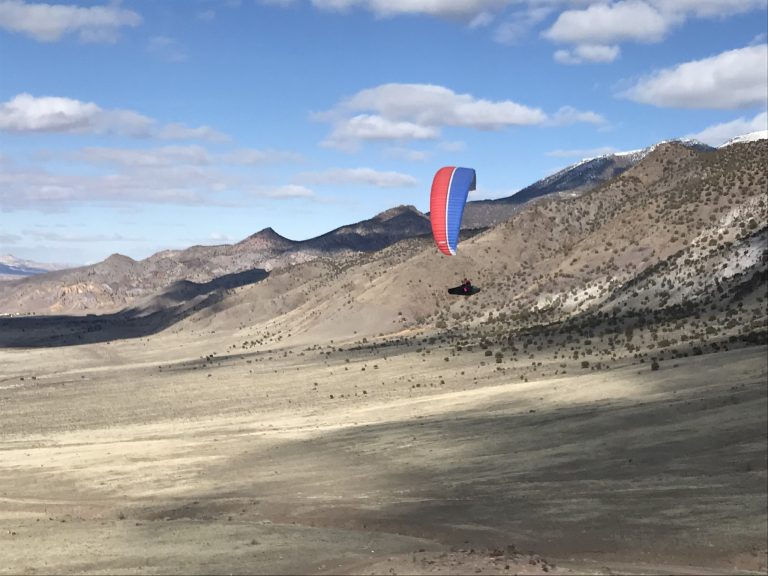
Updated: 12.18.24
The local Training hill sits at the base of Mighty Monroe Mountain. It is a great place to bag a few laps for sledders. It has also been dubbed the “Launch Pad” as pilots have soared up and out of the Training Hill to altitudes reaching Monroe Peak!
Although dubbed the Training Hill, the same general guidelines apply here that apply to our higher peaks. Pilots may need to utilize high wind kiting techniques, perform a no wind forward, or a light wind dynamic reverse launch. Being at the base of an 11,200ft peak, strong thermal conditions can be present during the peak season of March-October. Thermal activity may be present as early as 9:30am and continue well past 5:00pm. Active piloting, situational awareness, and receiving local pilot knowledge on site prior to flying is crucial and required.
For the purposes of mellow training flights or kiting, it is recommended that pilots launch within the first 3 hours of sunrise or within the last 2 hours prior to sunset. Kiting midday is discouraged during the peak season of March-October to avoid the risk of dust devils or strong thermic cycles close to the ground.
Beware of possible rotor coming off the West launch in a South wind if launching on the North launch. Strong kiting skills may be needed as launch is situated on top of the hill and blow-back is a possibility.
Take note of the location of the powerlines and fences in the valley and avoid as necessary.
High altitude general flying information can be found HERE.
Launch
North Launch
H1/P1/M1 Required
Wind Direction: Ideal 340-30, OK 315-45
Wind Speed: H1, Min 5, Ideal 10, Max 15, gusts to 3
P1, Min 3, Ideal 6, Max 10, gusts to 3
M1, Min 3, Ideal 10, Max 15, gusts to 3
Glide Ratio 3.3
West Launch
H2/P1/M1 REquired
Wind Direction: Ideal 60-120, OK 45-135
Wind Speed: H2 Min 5, Ideal 10, Max 15, gust to 3
P1 Min 3, Ideal 6, Max 10, gusts to 3
M1 Min 3, Ideal 10, Max 15, gusts to 3
Min Glide Ratio 3.3
Landing Zone
The Training Hill LZ is a nice, sage-free area with a windsock nearby.


